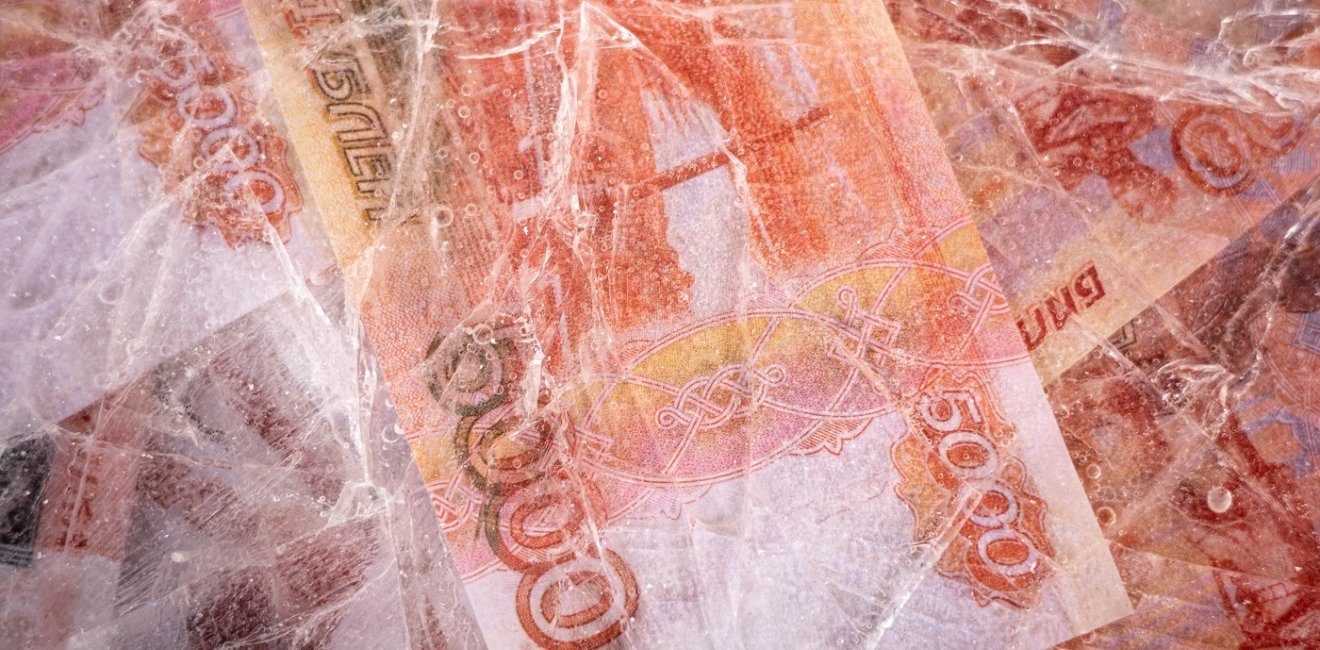
A blog of the Kennan Institute
Following significant US aid to Ukraine, the idea of using frozen Russian assets as a financial solution for the conflict’s aftermath has gained traction, though it remains highly debated. The United States has introduced new legal approaches, including the recent Rebuilding Economic Prosperity and Opportunity for Ukrainians Act (REPO Act), to manage the challenging international rules about the protection of sovereign assets.
Experts contend that the $60 billion initially allocated serves only as a stopgap, while the complete reconstruction of Ukraine is projected to necessitate at least $500 billion. As a result, many suggest that the most practical solution involves leveraging frozen Russian assets.
The issue is thorny, but the complex world of international law does suggest some viable approaches to this end.
Problem
Currently, Ukrainian authorities have not clearly defined their criteria for victory, instead focusing on declarative statements about Zelensky’s peace formula and outlining the severe consequences of a potential defeat.
This approach overlooks critical feedback from international partners urging the resolution of various internal issues. In addition to such long-standing issues as corruption, the communication channels used by Ukrainian leaders have also come under warranted criticism. This criticism substantially diminishes the impact of key arguments, particularly those in the peace formula that address the responsibility of the Russian Federation.
The REPO Act underscores the forward-thinking stance of the United States on this matter. In brief, this legislation authorizes the president to confiscate Russian foreign exchange reserves held in the United States, provided that he identifies these reserves and reports to Congress within a 180-day period.
Paradoxically, the enactment of this legislation represents Ukraine's most significant achievement in securing reparations for the two years of conflict. Previously, discussions regarding the Russian Federation’s accountability for war crimes and related damages were largely theoretical, yielding no concrete results but political statements.
Europe's hesitancy is likely driven by economic considerations, and invoking “reparations” in international law could significantly complicate international relations.
Although the REPO Act has not yet been implemented, its adoption signals that some nations are prepared to reevaluate some fundamental principles of international law, especially the concept of sovereign immunity.
However, the legal basis for “frozen” assets is tenuous, potentially inviting numerous counterarguments and reciprocal measures from the Russian Federation. Moreover, Russia's continued integration within the global trade and financial systems provides it with a buffer to sustain a prolonged conflict. While the pace of Austria’s Raiffeisen Bank’s withdrawal from the Russian market, following the request of the European Central Bank to decrease loans, remains to be seen, domestic pressure illustrates a proactive stance.
Because the West has made little progress in establishing a mechanism to collect damages, whether through the International Claim Commission or another initiative, it is likely that the Russian Federation will eventually challenge the legal basis for asset freezing as part of its lawfare.
Solution
In my view, vigorously enforcing existing rulings against the Russian Federation—targeting both its sovereign assets and corporations operating within its borders that finance aggression—could mitigate the legal uncertainties surrounding the handling of frozen assets and set the stage for forthcoming legal challenges.
Our previous analysis of enforcement judgments against the Russian Federation revealed no essential legal barriers to seizing Russian assets, including sovereign ones. This conclusion is also supported by other experts in the field.
On the other hand, enforcing such awards against foreign companies presents significant challenges. Merely paying taxes in the Russian Federation does not constitute intentional war financing. Additionally, these companies could argue that their continued operations result from coercion or blackmail by Putin’s regime.
Nevertheless, international investment arbitration may provide a remedy. Coercing a company to maintain its market presence could be viewed as a breach of the fair and equitable treatment (FET) and full protection and security (FPS) principles, forming the foundation for a related investment claim. The situation is somewhat complicated by the fact that Russia is not officially at war; however, its initiation of a “special military operation” can be interpreted as a governmental action that contradicts investors' legitimate expectations, leading to unforeseen financial losses.
Therefore, if a company continues operations in the Russian Federation without clear evidence of unsuccessful attempts to withdraw because of coercion by Russian authorities, we believe it could be deemed complicit in aggression.
As experts in international arbitration admit, the case Urbaser v. Argentina, heard before the International Centre for Settlement of Investment Disputes (ICSID), has provided an avenue through which corporate entities—and not merely individuals acting in their corporate capacity—are obligated not to contribute to crimes against humanity.
In this scenario, seizing the accounts of such companies is not impossible and could serve as an effective method to accumulate funds for expenses arising from the Russian invasion. This approach might also include filing claims against these companies by Ukraine and adding their shareholders and management to sanctions lists.
Surely, this will require significant legislative efforts, both domestic and international; however, the ongoing conflict and its aftermath already present a complex array of legal and financial challenges. As the international community considers the use of frozen Russian assets for reparations, it must also address the broader implications such decisions may have on international law and relations. Continued dialogue, transparent decision-making, and proper legal frameworks will be essential in resolving these issues.
The opinions expressed in this article are those solely of the author and do not reflect the views of the Kennan Institute.
Author


Kennan Institute
The Kennan Institute is the premier US center for advanced research on Eurasia and the oldest and largest regional program at the Woodrow Wilson International Center for Scholars. The Kennan Institute is committed to improving American understanding of Russia, Ukraine, Central Asia, the South Caucasus, and the surrounding region through research and exchange. Read more

Explore More in Focus Ukraine
Browse Focus Ukraine
Talking to the Dead to Heal the Living

Ukrainian Issue in Polish Elections


